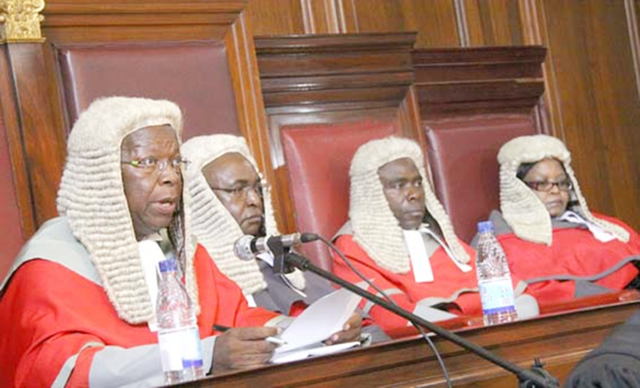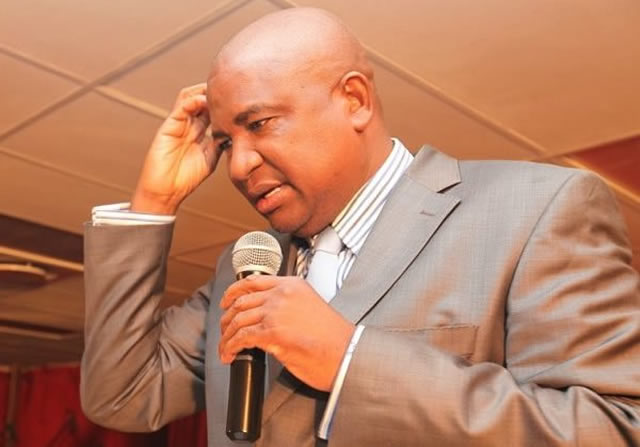Zimbabwe’s Legal System: Hopes and aspirations?

Special Correspondent
Scrutiny of Zimbabwe’s legal system continues and persists long after the passing of the new Constitution, the nation’s supreme law.
While it is true that law, whether domestic or international is a combination of expectations, rules and practices that help govern behaviour it has to be pointed out that all legal systems are dynamic, continually evolving.
Experts agree that no legal system is perfect. This explains why even in those countries that boast of the law abiding, rules are broken and sometimes the guilty go unpunished.
Much as a country’s law reflects and directs its society, it also mirrors the norms of that society. In other words we legalise what we do in practice.
A system of law does not just happen. It grows. The mechanisms and processes used to judge disputes according to the law are an essential element of any legal system.
Quite often this is what measures any legal system’s adherence to due process.
It is with this concern in mind that the United States Congress passed the Speedy Trial Act of 1974. The essence of this law is to ensure that the determination of one’s fate at law cannot be put off for an unduly long period of time.
For example the Act mandated time limits reaching 100 days within which criminal charges must either be brought to trial or dismissed so that accused persons do not languish in prison for a long time prior to the trial of their case.
It is early days yet to see how the recently established office of Prosecutor-General and its first incumbent Johannes Tomana will fare, but it is crystal clear what the new Zimbabwe Constitution intended.
The whole notion of fairness and justice should ensure that no litigant is unfairly prejudiced by prolonged delays in bringing cases to trial, however complex and technical the matters are.
But this is not so. And much as Western powers would have us believe that their legal systems are more sophisticated and better organised, they do not seem to fare any better.
Examples abound of such cases.
Recently in the United Kingdom, citizens commemorated the murder of a black teenager Stephen Lawrence, whose parents secured a landmark commitment in 1999 from the Labour government to combat “institutional racism” after a six-year search for justice.
The government acknowledged then that in the police as well as in many other organisations in British public life, including the justice delivery system, there was practice of “institutional racism”.
This was the scathing verdict reached by Sir William Macpherson in his report into the UK Metropolitan police’s handling of the investigation into the murder at a bus stop of the promising “ A” level Black student by what the Guardian Weekly later termed “the suspect gang of five evil white youths”.
In Zimbabwe, few people have litigated as much cases at home and abroad as much as one Aguy Clement Georgias, managing director of Trinity Engineering, a former Senator and a Deputy Minister of Public Works, famous for the landmark in-duplum case, which prohibits banks from charging interest on loans exceeding the principal amount loaned.
For seven long years he pursued a case in the Zambian courts over non-payment for trailers ordered at a Trade Fair in that country where his company exhibited by the Zambia Consolidated Copper Mines, ZCCM, as it was called then.
Eventually he won reprieve from the courts and was paid, but only after petitioning the highest office in the land.
Georgias has some interesting perspectives on this subject. He believes the British government, and the European Union, have no moral standing in accusing Zimbabwe for violating the rule of law.
Says Georgias: “If the essence of justice and the rule of law has to do with timely, open and fair hearing of cases before the courts, that puts closure and finality to disputes brought before courts for adjudication within the most reasonable time possible, then I have virtually lost all the respect I heard for the British legal system”.
“After what I experienced in London when I put up a challenge to the British government for barring me entry into the UK in 2007 on the basis of my listing on the EU travel ban at the British High Court, where apart from denial of a fair trial, I had solicitors abandoning the case midway through the hearing, I have not even an iota of respect”.
Adds Georgias: “And even the EU cannot boast of an efficient, fair and responsive legal system. For close to two years now I have been waiting for the EU General Court to set a date for a hearing of my case against EU sanctions on Zimbabwe, this after they turned down an application by my London solicitors for an expedited hearing on the grounds of my advanced age and failing health, in turn aggravated by the stress I have suffered as a result of the EU action”.
“It, however, becomes doubly painful for one to suffer the same judicial abuse at home. My company Trinity Engineering is currently encumbered in terms of accessing working capital from the banks due to delays in the hearing of a fraud case involving our company title deeds we have at the High Court against one Russell Karimazondo and Telecel.
“This Russell chap is boasting that he will manipulate the Court system, and he appears to be succeeding, to delay the hearing of the case.
His thinking is that, because my health is failing, he will cause the trial to be delayed for a prolonged period during which he expects me to die”.
Although Georgias says he cannot at the moment conclusively state that the court system is open to such manipulation, where litigants delay trial of cases deliberately in order to affect the outcomes, he fears that this may prejudice the case of Trinity Engineering versus Russell Karimazondo and Telecel. His worst fear is that the court could be found wanting in being open to or complicit to such an abuse of the legal system.
Whatever blemishes are being poured on Zimbabwe’s legal system however, it is clear that as it develops and evolves like any other, according to the constitutional doctrine, it is poised for improved sophistication and efficiency.









Comments